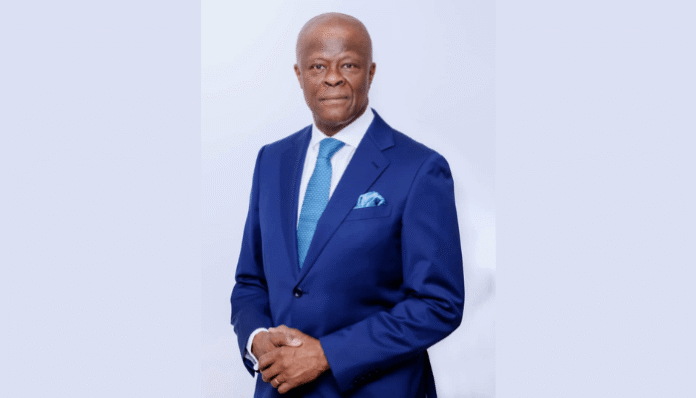The Federal Government, under its social protection programme, has disbursed N330 billion directly to households, the Minister of Finance and Coordinating Minister of the Economy, Wale Edun, has disclosed.
Speaking at a press briefing in Abuja on Wednesday, Edun said the initiative was designed to cushion the impact of recent economic reforms on poor and vulnerable Nigerians, with payments made in three tranches of N25,000 per household.
“Our target is to reach 15 million households, with each household receiving N25,000 in three tranches. To date, 8.11 million households, representing 54 per cent of the target, have received their first tranche, 2.75 million households have received their second tranche, while 2.43 million households have completed all three tranches,” the minister explained.
Edun also confirmed that the programme will now be institutionalised and captured in the nation’s annual budget. He said this move was to ensure continuity, transparency, and accountability in the government’s support to the most vulnerable Nigerians.
Specifically, the Minister insisted that cash would not be handed over to beneficiaries but instead transfers would be made to the benefiting households using their BVN and NIN.
Figures released by the ministry show that the North received 72 per cent of total disbursements, while the South got 28 per cent. In terms of gender, 69 per cent of beneficiaries were female, compared to 31 per cent male recipients.
The age distribution of beneficiaries revealed that 8 per cent are under 20 years old, 30 per cent fall within the 21–35 age bracket, 22 per cent are between 36–50 years old, 36 per cent are aged 51–65, while 4 per cent are above 65 years.
Monthly cumulative data showed steady growth in coverage: from 1.78 million households in November 2023, to 2.59 million in December 2023, 2.98 million in January 2024, 3.35 million in June 2024, 4.26 million in July 2024, and 8.11 million households by August 2025.
According to Edun, 2.2 million new households were paid between June and August 2025, bringing total coverage to 54 per cent of the 15 million target.
“The delay in disbursement pace has been largely due to the lag from NIN enrolment. With the systems built by NASSCO and NIMC, the outlook for completing payments is strong. We are prioritising identity and payments exception clearance to reach the remaining 6.9 million households over the coming months,” he said.
Edun noted that the government aims to ensure that 45 per cent of the targeted 15 million households are female-led. He stressed that transparency remains central to the exercise.
“Our focus remains steady: from 54 per cent coverage today to full coverage — verified, transparent, and people-first. We are accelerating exception resolution, scaling last-mile delivery, and providing regular public updates on both coverage and impact. Put simply, we are converting reforms into results — verified support, delivered at scale — and we remain committed to reaching every eligible household across Nigeria,” Edun added.
The minister tied the programme to the government’s broader economic strategy under President Bola Tinubu, which he said was aimed at building “a strong, stable, and inclusive Nigerian economy.”
“To ensure the private sector drives growth and job creation, the government will focus on creating an enabling environment, removing bottlenecks, and unlocking opportunities,” Edun said.
He added that the strategy rests on two key priorities: stabilising the macroeconomic environment by reducing volatility in exchange rates and inflation, restoring investor confidence, and attracting capital, as well as supporting enterprises of all sizes to scale up productivity while protecting vulnerable Nigerians.
“By combining social protection with economic reform, we are ensuring that growth is inclusive and that prosperity is shared,” he stated.
Funmi Olotu, National Coordinator of the National Social Safety-Nets Coordinating Office (NASSCO), also provided clarity on the implementation of the programme.
According to her, at least 8.1 million households have received one tranche of the cash transfer, with some completing all three. She explained that the staggered pattern of disbursement was due to the federal government’s directive to integrate the National Identification Number (NIN) into the National Social Register to ensure payments were made directly into verified accounts.
“We have visited about 7.9 million households and collected about 10.2 million NINs, of which NIMC has validated 9.6 million. It is these validated NINs that we now paid, because Mr. President directed that payments must be made directly into beneficiaries’ accounts. That is why some have received one tranche, some two, and some all three,” Olotu explained.
She further clarified that the National Social Register, built in collaboration with the World Bank, was not political. “It is devoid of politics. The Minister of Finance cannot give me names to put on my register. Mr. President cannot give me names to put on my register. It is a transparent register that uses more than 40 variables to identify poor and vulnerable households,” she said.
Olotu also revealed that the register currently has over 70 million vulnerable Nigerians, covering about 19.7 million households.
She recalled that the original World Bank-supported design of the programme provided N5,000 monthly payments for six months, backed by $800 million in funding. However, the Tinubu administration revised the model to N25,000 per household for three months, in response to the economic pressures caused by the removal of fuel subsidy and naira devaluation.
“The present administration increased the amount so that households have more money because of the reforms. This was necessary because the most hit by the reforms are poor and vulnerable Nigerians,” Olotu explained.
She added that President Tinubu has also signed an executive order directing that all social interventions in the country must derive from the National Social Register. Development partners and private organisations, including the Tony Elumelu Foundation, already rely on the register to design and implement interventions.
“This register is not only for cash transfers but serves as a credible database for all interventions,” she noted.

